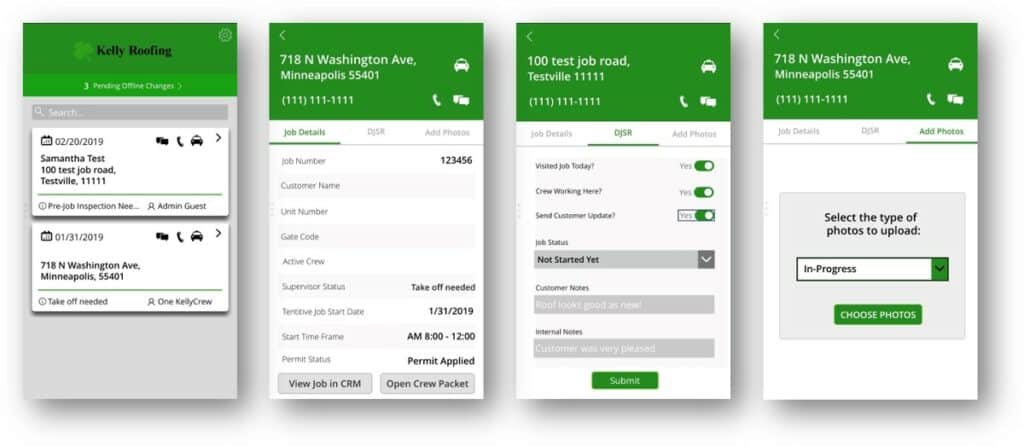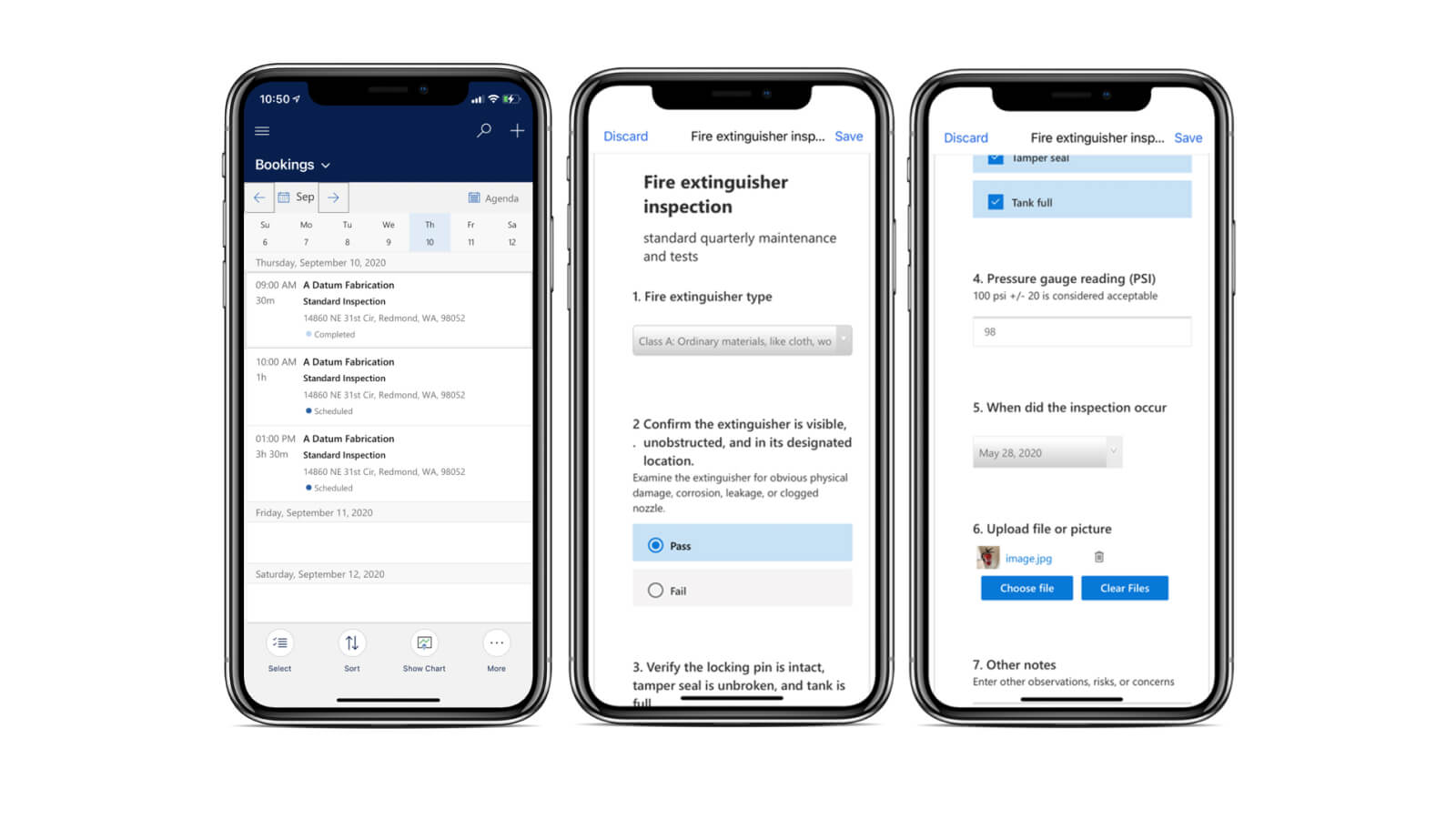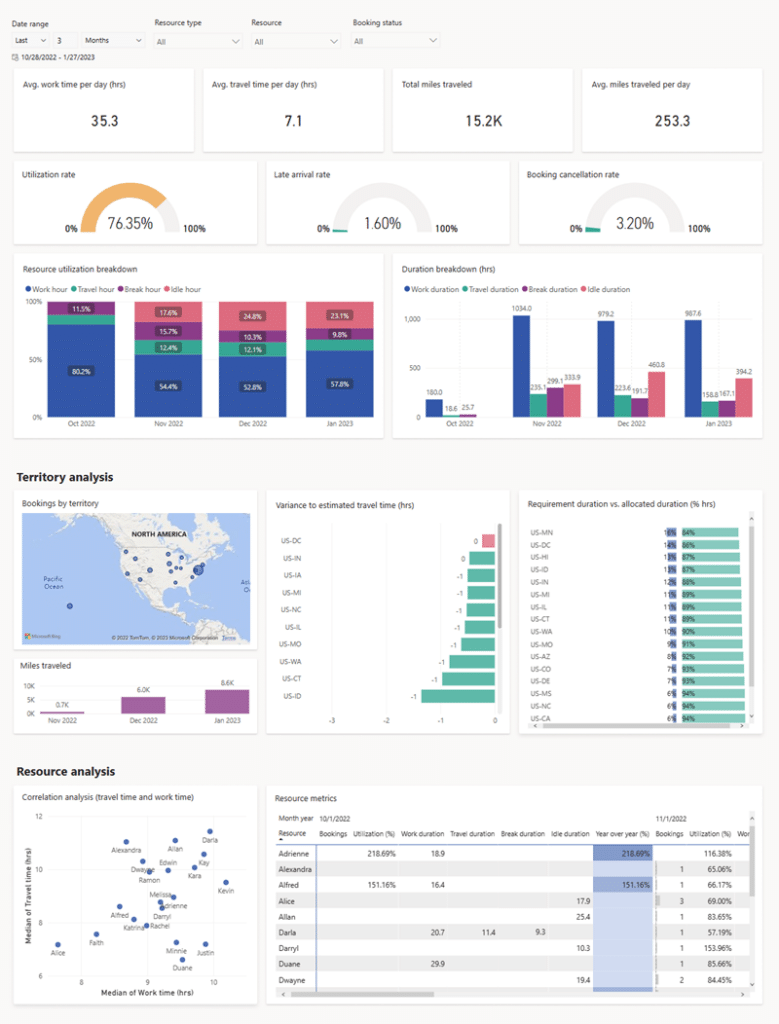Field Service Management Solutions for Home Services Companies
Field service management software helps home service companies stay competitive with solutions that transform their business at every level.
Field service management software helps home service companies stay competitive with solutions that transform their business at every level.
Table of Content
Within the home services industry, you’ll find a diverse assortment of providers – plumbers, painters, cleaners, contractors, HVAC and solar installers – anything that caters to residential customers.
In this article, we’ll look at some of the ways field service management software can help home service companies stay competitive for years to come.
During the thick of the pandemic, demand for home improvement services soared. Consumers, stuck at home, funneled disposable income into upgrading home offices, kitchens, and outdoor spaces, rather than fast casual lunches, vacations, and nights on the town.
While COVID lockdowns have largely faded into a surreal, semi-distant memory, the home services space shows no sign of slowing down. Many consumers are still spending more time at home – both for work and leisure. And, even if they’re not, plumbing, remodeling, and electrical services are always in-demand.
Home services might always be in demand, but are local operations with small teams and limited budgets. So, many times, they put off critical IT investments due to concerns about costs, training, and other factors.
Some still use manual processes, paper-based records, and siloed, entry-level software to run their business. And, as a result, those companies may find themselves in a vulnerable position – losing customers to tech-savvy competitors and new entrants.
And, while it’s still an investment that business leaders will need to justify and commit to supporting long-term, the costs of procrastination are much higher than shelling out for these essential upgrades. Luckily, FSM tech has gotten more affordable and accessible – bringing big-time benefits to residential service providers of all shapes and sizes.
Below, we’ll share some examples of how FSM tech helps real providers fuel growth, optimize resources, and win big by focusing on experience.
Keeping up with customer expectations is something every business must contend with. And, home services companies are no exception.
Even within the last few years, customers have dramatically increased the number of digital interactions they have with companies – from e-commerce transactions to app-based delivery to their local plumber or handyman.
They expect round-the-clock support – across all channels, personalized service, and seamless experiences. 8-hour service windows, return visits, and cash-only transactions won’t cut it – even if you’re a one-person operation.
The first step toward meeting these ever-rising expectations is consolidating your entire business into a single platform. So, 99% of the time (don’t quote us on this), that means an ERP with embedded CRM and field service capabilities.
As an example, Kelly Roofing uses D365 Business Central to manage all customer and work order info re: repair and installation jobs. They’ve also added D365 Field Service and Sales to BC’s core stack to better support techs and sales reps in the field (or the office).
Crucially, though, Power Apps and Power Automate take the Kelly Roofing stack to the next level, allowing them to build custom apps that meet the specific needs of both employees and customers.
One of those apps (pictured below) is a job photo app that simplifies the process of capturing and cataloging job site photos.

Ultimately, it’s solutions like these that allow service orgs to deliver real value to customers – and, by extension, gain a competitive advantage.
Now, getting to the point where you can build custom business apps demands detailed customer insights, as well as a deep understanding of what solutions are out there and how to use them to achieve your goals.
According to NetSuite, digging into customer feedback is the best way to surface opportunities for improvement. But, beyond that, you’ll probably need to work with a technology partner (you know, like Velosio) who can help you ID, select, and customize the right FSM solutions.
This whole idea of “doing more with less” is a key theme in this tumultuous era. But, for residential service providers, it takes on even greater importance.
For example, Dynamics 365 Field Service boosts technician productivity by connecting them to support resources and making it easier to access customer data, capture information on-site, and better prepare for each service call – thus improving first-time fix rates and resolution times.
As you can see in the example below, D365’s mobile app makes it easy for field technicians to manage bookings, complete routine maintenance/inspections, and submit reports from any smartphone or tablet.

By automating manual processes, streamlining operations, and serving up valuable real-time insights, FSM software enables home service orgs to deliver better, more reliable service, lower operating costs, and drive sustainable growth.
If you’re not careful, operational costs will eat up your margins fast.
Inefficient routing leads to overspending on fuel and long wait times for customers. Ineffective scheduling and dispatching practices limit the number of service calls per day. Poor visibility is directly at odds with high first-time-fix rates and just all-around decision-making.
The list goes on. The point is, centralized, digitized field service operations set the stage for total control of the bottom line. From there, you can take action to cut costs, boost revenue, and maximize the value of existing resources.
If you’re using D365 Field Service, you’ll gain access to real-time inventory, asset, and resource management capabilities.
Businesses can track inventory levels of parts, hardware, and other materials needed for each service call, as well as the availability and condition of vehicles, equipment, and tools.
In-app visual reporting tools allow business leaders and managers to look at the big picture and make informed decisions about how to take their strategy to the next level.
For example, resource managers might use the built-in resource & utilization report (screenshot below) to capture and analyze data re: how they’re using available resources.
They might track metrics like allocation, utilization, first-time-fix rates, time spent on booking, scheduling, admin tasks, etc.. then use those insights make changes that save money, increase retention, whatever.

Again, you’ll get the most value by venturing beyond the parameters of D365’s canned reports. That might mean making slight tweaks to some pre-made templates, as well as building original dashboards and reports from scratch, based on the information that matters most to you and your employees.
Additionally, you’ll probably want to invest in self-service solutions that allow all end-users to work with data on their own terms – in context with individual roles, of course.
With a unified platform, good data, and the right field service management solutions, home services companies can transform their business at every level.
Velosio’s field service team has decades of hands-on experience and expertise – both as Microsoft experts supporting hundreds of home service clients and as technicians and field leaders themselves.
Talk to us about how Velosio can help you realize business value faster with end-to-end solutions and cloud services.
"*" indicates required fields